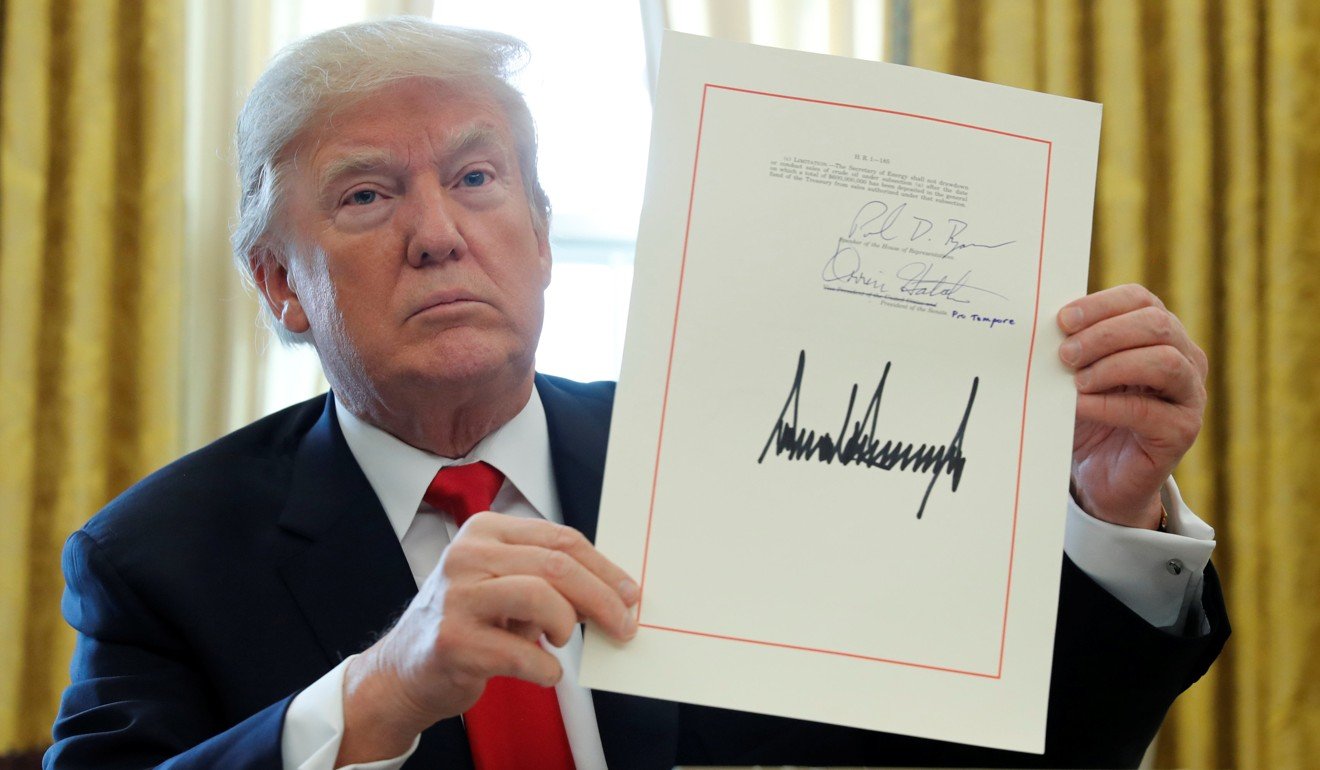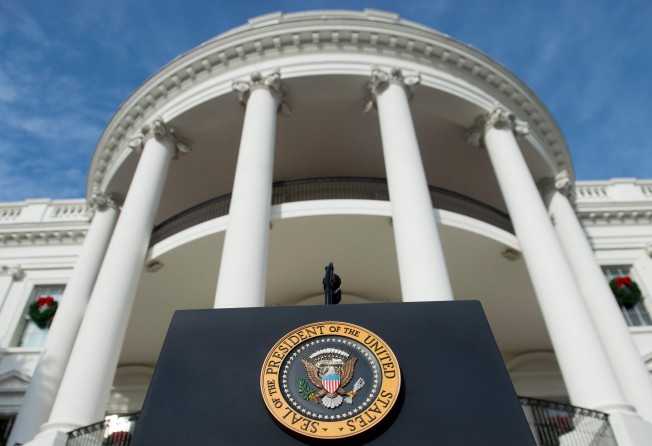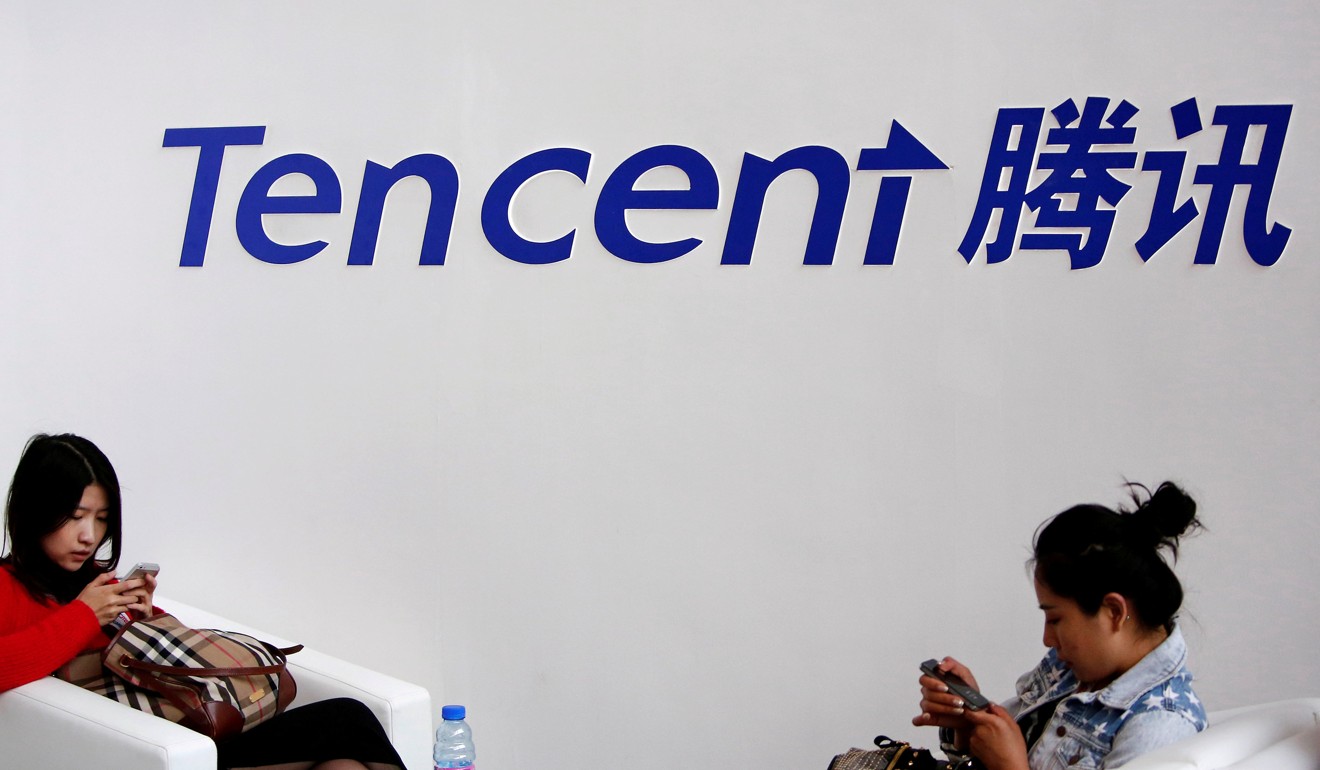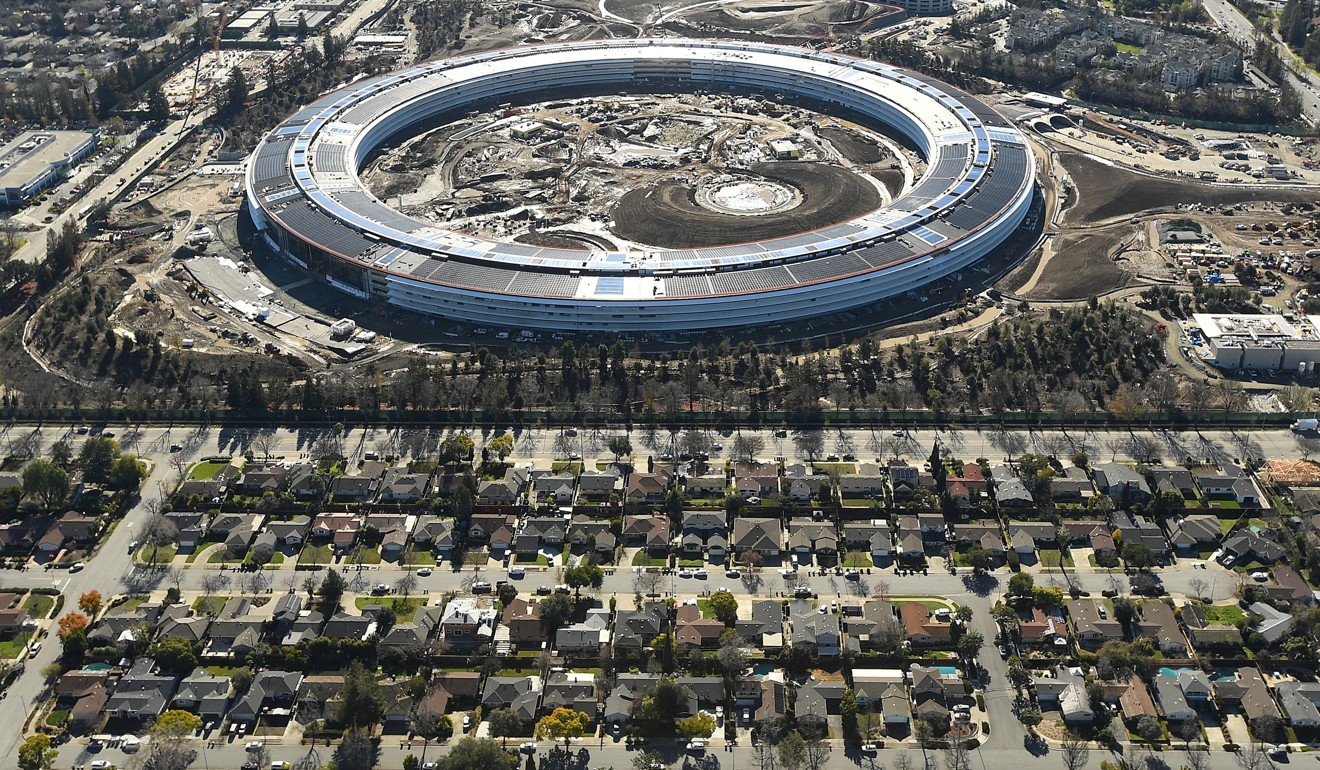
Asia will be right in the thick of an oncoming tax war with the US
Where should US companies pay their taxes? Regardless who you ask, the answer seems to be ‘here’, since every taxman in the world thinks Silicon Valley owes them taxes

2018 begins with a rare moment of accomplishment for US President Donald Trump’s administration: The United States is verging on the nation’s biggest overhaul of its tax code for a generation, which will radically cut taxes on profits by US multinationals that repatriate their overseas earnings back to the US.
Since many of these profits are currently re-invested in Asia or Europe, the consequences are worrying for finance ministers across both continents.
At the same time, Asian and European governments themselves have been lobbying for a change in how multinationals – and in particular internet companies – should be taxed.
It seems Asia and the US are on the verge of a war over the question of where US companies should pay their taxes. Regardless who you ask, the answer seems to be “here”, since every taxman in the world – in Paris, Bangkok or the US Inland Revenue Service – thinks Silicon Valley owes them taxes.
But the fact is all exporters are required to pay most of their taxes in one place – at home.

According to the tax agreements that governments around the world agreed upon, multinationals are only required to pay corporate income tax (as opposed to sales taxes) where they have a “permanent establishment”, rather than in every single country they trade with.
If global commerce is going to work for all the world’s consultants, car makers, silk weavers and internet entrepreneurs alike, it is of equal importance to avoid double-taxation with the same zeal as we fight tax avoidance.
Who’d bother to export to other countries if you had to pay taxes twice, ending up paying more in taxes than you make? International tax agreements recognise that companies should not pay once at home and foreign markets – at least until now.
After all, who’d bother to export to other countries if you had to pay taxes twice, ending up paying more in taxes than you make? International tax agreements recognise that companies should not pay once at home and foreign markets – at least until now.
Countries like France are diverging from the principle and singling out US tech firms to double-tax them, or to calculate their taxes on turnover rather than profits; Indonesia and Thailand have gone after US tech firms on a similar basis, and Vietnam and South Korea have followed their example.
But these countries are not just frightening off investors and undermining the rule of law: They might be hurting their own economies in the process.
To begin with, it is a misconception that Silicon Valley firms can register their businesses anywhere and navigate between the tax systems.
Examining the actual taxes paid by Silicon Valley companies show they pay far more in average taxes than major Asian multinationals and telecom companies, and more than local Asian tech companies such as Samsung, Tencent, IndoSat (Indonesia), FPT (Vietnam) or AIS (Thailand).
There’s an explanation to this paradox: US companies pay most of their taxes in the US, where statutory tax rates have been much higher.

If Silicon Valley really wanted to avoid taxes, they would have relocated to Asia. The question is not whether companies pay their fair share of taxes – which they all do – but where they pay them.
Another illusion is how internet companies are causing corporate tax bases across Asia to erode.
But the reality is the opposite: Thanks to trade, corporate tax revenues in China, India and the Asean countries are growing, helping to lower taxes on local workers – and even faster than the economy is growing overall. Tax revenues have doubled since the use of internet took off in Asean.
As internet firms pay more taxes than local firms, governments are trying to address a problem with the internet that doesn’t exist. Even if there was a problem with multinationals in general or the internet in particular, the question is whether companies are to blame.
Respectable governments offer favourable and predictable tax environments to attract foreign businesses or encourage local entrepreneurs to stay.

Governments – not the internet – are causing the trouble with corporate taxation, and companies are merely responding to these incentives.
Asian countries belong to the group that benefits most from current arrangements as they export more than they import – so if Asian governments could tax Silicon Valley firms, but their own exporters were required to pay taxes in the US or Europe, Asians would be back at a net loss.
Lower taxes have been used to attract Western multinationals to invest for several decades – and the US tax reforms are to some extent a response to those developments.
If there ever was a moral problem, governments must be honest and admit it’s their policies that are causing the issue.
In 2018, governments are bound to wage their war against each other, and not just against foreign businesses.
Hosuk Lee-Makiyama is director of ECIPE, a Brussels-based think tank and co-author of the report ‘Geopolitics of Online Taxation’.